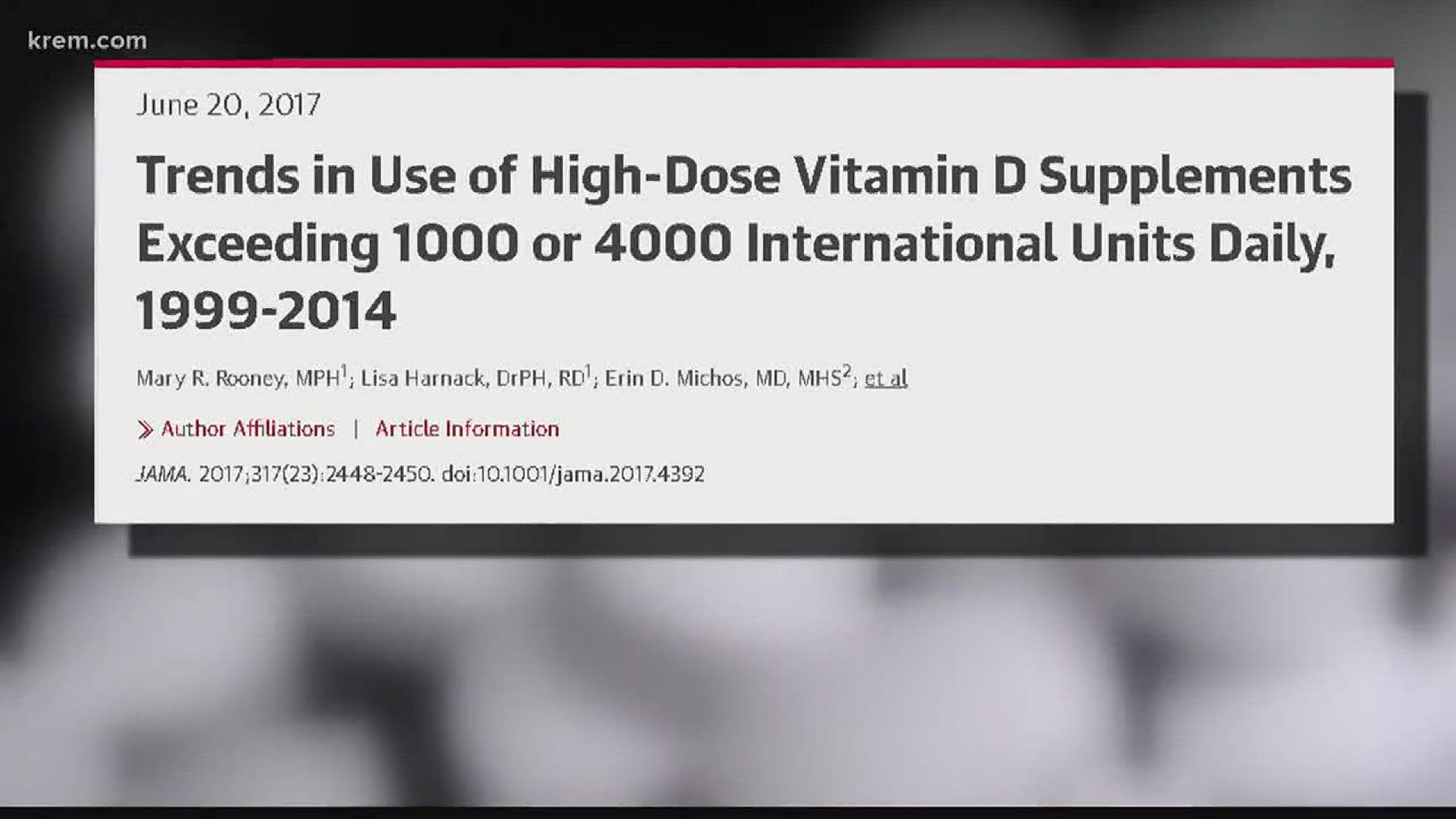SPOKANE, Wash. – With spring starting u and summer coming up soon, you may be spending more time outside which means more vitamin D.
But, too much of a good thing can be a bad thing. Vitamin D, known as the sunshine vitamin, is a hormone produced by the body when you are out in the sun. It helps to regulate your genes, blood pressure, blood sugar and keeps abnormal breast and colon cells from multiplying.
There is also enough clinical proof to show vitamin D works with calcium to keep bones healthy. Unfortunately, the vitamin D trend is not all blue skies. Doctors who study vitamin D at Brigham and Women's Hospital said even though some research shows an association between low blood levels of vitamin D and different diseases, it has not been proven vitamin D deficiency will actually cause disease.
Even though the research is a bit hazy, people could be overdoing it with vitamin D supplements.
The Journal of the American Medical Association researchers found a three to 18 percent increase in the amount of people taking 1,000 to 4,000 international units a day. This is more than six times than what is recommended for most people.
Doctors said this is dangerous because high levels of Vitamin D could be toxic in some cases.
For example, it can lead to hypercalcemia, a condition where too much calcium builds up in the blood and could form deposits that damage arteries. High levels may also put women at risk for kidney stones and bone fractures.
According to doctors, the entire American population has a general deficiency of vitamin D because we are spending less time outdoors and are loading up on sunscreen when we do get a chance to get outside. Other factors like weight, age, gender, skin, pigmentation and where someone lives could also be contributing to lower vitamin D levels.
Health experts suggest working with your health-care provider to find a safe dose for your needs because too much of the sunshine vitamin will out-weigh its benefits.

